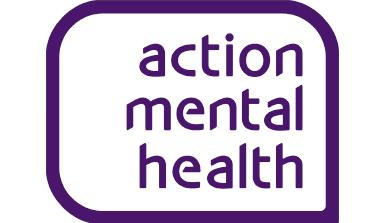Moving More For Our Mental Health
Mental Health / Get FitMany of us know that movement is a great way to lift your mood and improve anxiety levels. Yet when busy, overwhelmed or struggling with your mental health, it can often feel difficult to find the time, motivation or energy to incorporate exercise.
What are the mental health benefits of exercise?
Many of us have heard of the “mood-boosting” or “stress-relieving” benefits of daily movement, but what does that really mean? We believe that understanding WHY exercise aids mental health can play a vital role in helping people to incorporate it into their daily routines.
Regular physical activity is proven to improve mental health, quality of life and wellbeing. Exercise increases the production of endorphins such as serotonin and dopamine, which are responsible for improving mood and energy levels. It promotes reduces inflammation and increases neural growth, promoting feelings of calm and wellbeing. Exercise can provide a healthy mechanism to process difficult emotions and build self-esteem by focusing on what the body is capable of.
Exercise can ease anxiety and alleviate stress. Anxiety symptoms often relate to the body’s “fight or flight” response- whereby the body releases excessive stress hormones in response to a real or perceived stressor. For those experiencing anxiety, the fight or flight response may be frequently triggered, resulting in uncomfortable symptoms including a racing heart, hyperventilation, shakiness and nausea. Exercise can help control this “fight or flight” reaction by activating the frontal regions of the brain, controlling the amygdala- the part of the brain responsible for reacting to real or perceived danger. Additionally, movement decreases muscle tension, lowering the body’s contribution to feeling anxious.
What kind and how much exercise is the right amount?
There is no ‘one size fits all’ when it comes to how much exercise we should do and what type of movement is best. If exercise isn’t currently part of your routine, the thought of joining a gym or lacing up your running trainers may feel too overwhelming and that’s okay! Studies have shown that as little as 5-10 minutes of exercise a day can have a significant impact on anxiety levels and mood.
We recommend starting slow and focusing on a form of exercise you think you might enjoy. Exercise doesn’t have to be strenuous in order to see the mental benefits. Research shows that moderate exercise has the greatest benefits, for most people this means:
- Breathing a little heavier than normal, but not totally out of breath. For example, going for a walk with a friend and being able to chat throughout, but not easily sing.
- Feeling a little warmer than usual, but not super sweaty.
Exercise doesn’t have to fit the conventional mould in order to be good for you! Cleaning the house, playing with your kids outside or even getting off the bus a stop earlier are all things which can raise your heart rate without feeling too overwhelming.
Overcoming barriers to exercise
When you’re struggling with mental ill-health, exercise can feel incredibly difficult- you know it may make you feel better, but perhaps you don’t have the energy to work out, or the social aspect of the gym makes it feel especially daunting. Be kind to yourself as you aim to incorporate movement into daily life. Here are some tips that may help aid a more self-compassionate approach to exercise:
- Schedule movement for when you feel your best. If you find that the workday leaves you feeling drained and exhausted, a 5pm gym class may not be an achievable goal right now. Instead, you may find that a 15 minute YouTube workout in the morning helps you to feel accomplished and energised before the day begins. Similarly, if you take medication that leaves you feeling drowsy in the mornings, you may want to wait until lunchtime before you head for a walk. Scheduling your movement for when you feel most able allows you to build confidence and momentum.
- Focus on activities you enjoy. Many of us have grown up with idea that exercise must involve struggle in order to count- but this couldn’t be further from the truth! If you have always despised the gym, it’s probably not the best place to start your exercise journey. Remember- exercise is simply about getting your body moving and when you choose a form you enjoy, you’ll be much more likely to stick with it. Exercise isn’t just 10Ks and weightlifting – you could try gardening, walking around the shopping centre while window shopping, taking the kids of the park or dancing in the kitchen while dinner cooks
- Congratulate yourself for the good days and don’t beat yourself up for the bad ones. The key to any long-lasting lifestyle change is focusing on progress, not perfection. On the days where you manage to incorporate movement, take some time to congratulate yourself for the barriers you had to overcome to get there. You may want to reward yourself with an act of self-care, a nice meal or even just verbal affirmations. There will also be days where exercise just isn’t a possibility - maybe your schedule is too full or you simply aren’t feeling well enough- that is okay.
- Rest is often just as important as movement. On the days where you can’t incorporate exercise, try to practice self-compassion in a different way- whether that’s running yourself a bubble bath, doing some journaling or getting an early night.
















































































